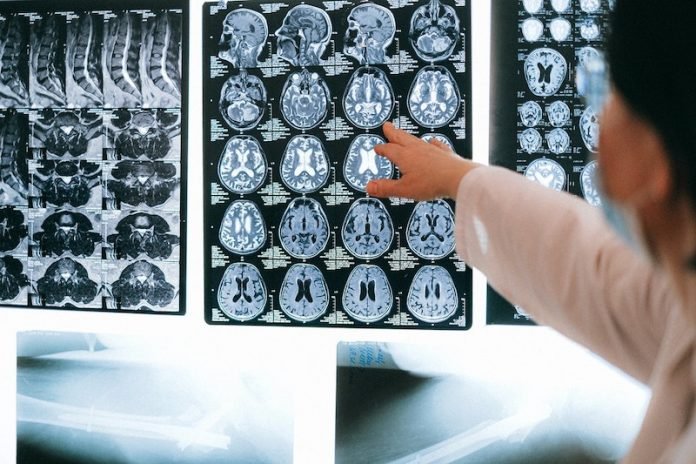
Scientists from Boston University found about 13% of hospitalized COVID-19 patients have serious brain problems.
The research is published in Critical Care Explorations and was conducted by Anna Cervantes-Arslanian et al.
Research has found that infection with severe COVID-19 causes dysfunction of multiple organ systems, including the nervous system.
Brain symptoms are frequently reported even in patients with mild illness and for some, these neurologic symptoms may persist as part of long-haul COVID.
In the study, the team examined 16,225 patients from 179 hospitals in 24 countries.
They found nearly 13% of patients admitted for COVID-19 in the first year of the pandemic developed serious brain symptoms.
Specifically, 1,656 (10.2%) had diffuse diseases of the brain that alters brain function or structure at admission, 331 (2.0%) had a stroke, 243 (1.5%) had a seizure, and 73 (0.5%) had meningitis or encephalitis (brain inflammation).
These findings showed that brain symptoms at hospital admission are common in patients with COVID-19 infection.
Additionally, the team discovered all serious brain problems were linked to increased disease severity, greater need for ICU interventions, a longer length of stay, ventilator use, and a higher death rate.
According to the researchers, patients with brain symptoms were more likely to have medical comorbidities.
Most notably, a history of stroke or neurologic disorder increased the odds of developing brain symptoms.
The team also found neurologic manifestations differed by race. Black patients had an increased frequency of stroke, seizure, and encephalopathy when compared with white patients.
Further study is needed to understand why these differences occur and what can be done to intervene.
If you care about COVID, please read studies about drug duo that may cure COVID-19 together, and this plant extract may help treat COVID-19.
For more information about COVID, please see recent studies about drug duo that may cure COVID-19, and results showing coffee and veggies may help prevent COVID-19.
Copyright © 2022 Knowridge Science Report. All rights reserved.



